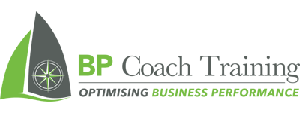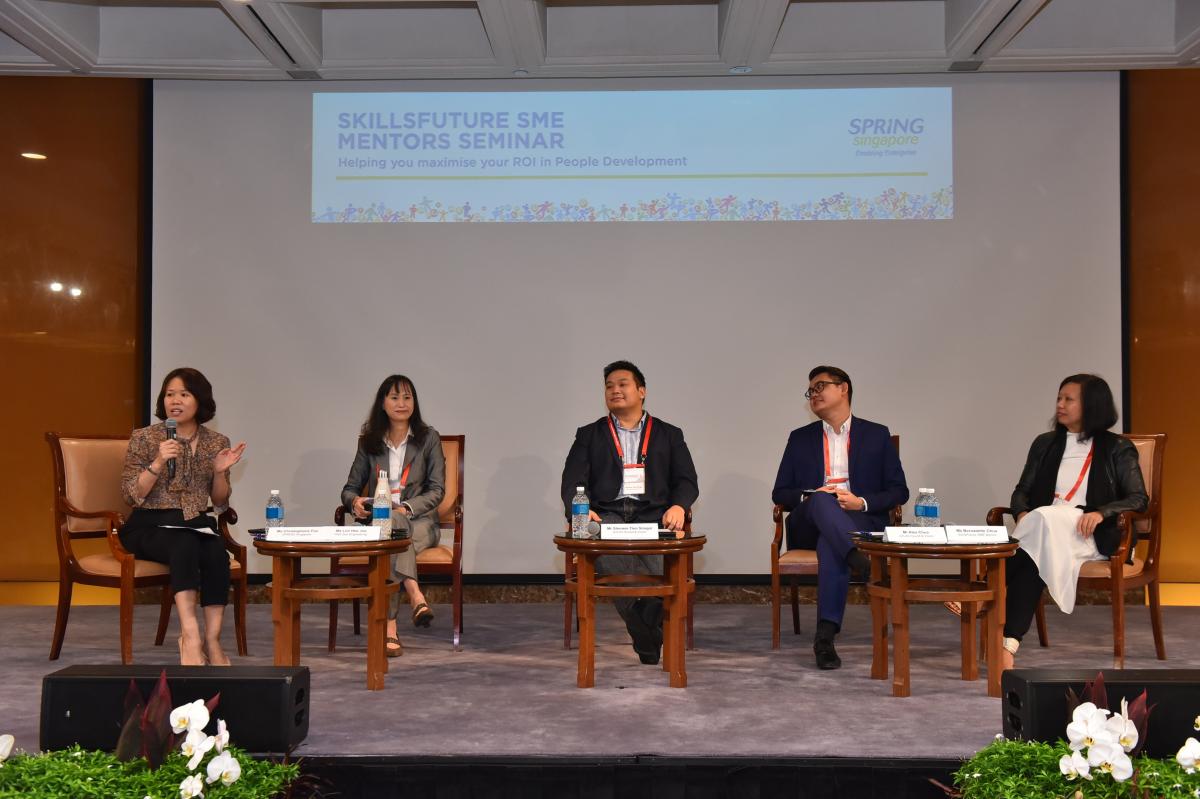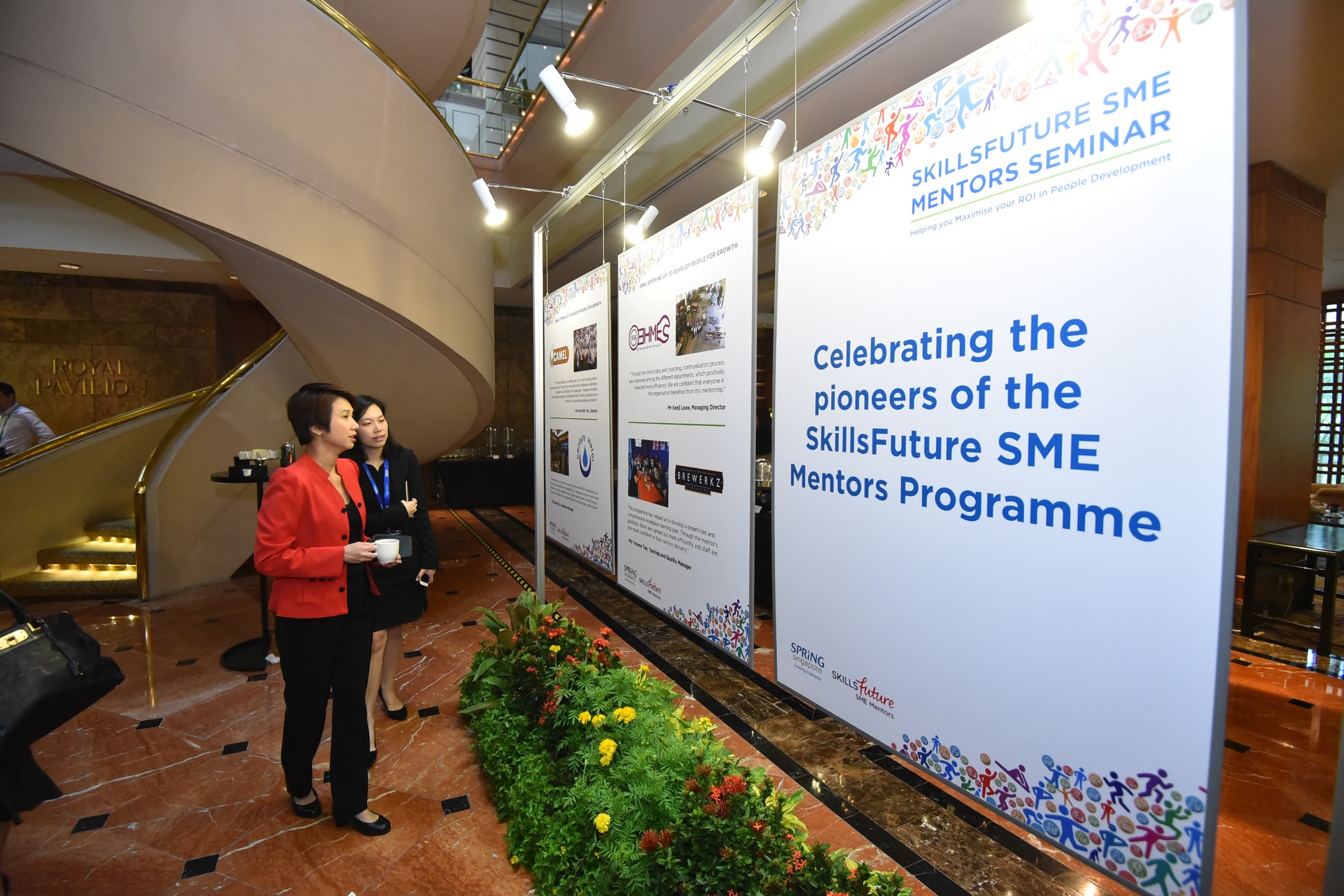The advancement of human capital is constantly at the forefront of SME leaders’ minds.
Fifty SMEs have completed or are about to complete the nine-month mentoring programme offered under SkillsFuture, with another 55 firms set to participate in this initiative.
To date, 116 mentors with vast HR and business experience in a wide range of industries have also been roped in to counsel and guide participating SMEs in revamping its people practices.
These were some of the insights shared during the SkillsFuture SME Mentors Seminar on May 25 (Thursday) which shed light on the progress undertaken by SMEs since the programme was launched about a year ago.
SkillsFuture SME Mentors programme is a SkillsFuture scheme that seeks to improve SMEs’ capabilities in learning and development which will boost SMEs standing as attractive employers affording enticing development and growth prospects for staff.
One SME which embarked on the programme to modernise its HR framework was local eatery Han’s.
The organisation partnered with Goh Khon Chong, a SkillsFuture SME Mentor, to conduct a training needs analysis and review of its on-the-job blueprints.
Goh, a 30-year F&B and HR veteran, coached Han’s operations, and learning and development supervisors, who learnt how to better assess learning needs, train staff in an effective manner and deepened their own managerial skills in the process.
Since the commencement of the mentorship initiative, Han’s has reduced its staff onboarding time from one month to three weeks across all outlets, with new employees benefitting from more structured and effective on-the-job training.
Staying relevant in today’s context
A panel discussion was held to tackle some of the prospects and challenges SMEs faced when making the decision to sign up for the mentorship programme.
Sherwin Siregar, CEO of ATLAS Sound & Vision who was one of the panellists and whose company signed up for the programme, said the organisation initially roped in training consultants to develop its own company curriculum, only to realise that it did not align with today’s requirements.
“Training was very organic and it wasn’t relevant to the current environment,” he said.
“The Skillsfuture SME Mentors programme allowed us to contextualise today’s challenges and fit it within our training needs of today and company budget.”
Bernadette Chua, a SkillsFuture SME Mentor, also shared the reasons behind several SMEs’ reluctance to be a mentee.
“They are in firefighting mode,” she said.
“They don’t have the time to sit down and deliberately design a system or a plan to develop their people practices.”
Another reason could be information overload, Chua suggested.
“They have a strong desire to invest in people but they don’t know how; there is just too much information and programmes,” she explained.
“Sometimes, they may have had previous experiences where it did not work. So, leaders tell me they have tried investing in people practices but that it hasn’t worked.”
Published by on 25 May 2017
Check out the SkillsFuture SME Mentor Video to find out more about how other SMEs have benefited from the programme. For more information, please contact us or visit Spring SkillsFuture Mentors site for more details.




